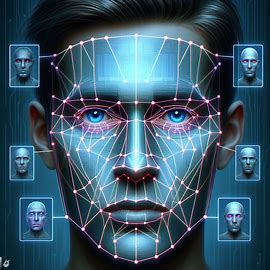The Federal Trade Commission (FTC) has announced a settlement with Rite Aid, a drugstore chain, over its secret and unfair use of facial recognition technology in hundreds of its stores. According to the FTC, Rite Aid deployed facial recognition technology without reasonable safeguards, resulting in false and harmful accusations of shoplifting against thousands of customers, especially women and people of color.
The FTC’s complaint alleges that Rite Aid used facial recognition technology from 2012 to 2020 to identify customers who may have been engaged in shoplifting or other problematic behavior. The company created a watchlist database of images of people who had allegedly committed such acts, and used facial recognition technology to compare the faces of customers entering its stores with the faces in the database. If there was a match, Rite Aid employees received an alert on their cell phones, instructing them to approach and identify the person, ask them to leave, or call the police.
However, the FTC claims that Rite Aid failed to take reasonable measures to prevent harm to consumers, who were often falsely accused of wrongdoing because of the facial recognition technology’s errors and biases. The FTC says that Rite Aid did not inform consumers that it was using facial recognition technology, and discouraged employees from revealing such information. FTC also says that Rite Aid did not test or audit the accuracy and performance of the facial recognition technology, nor did it provide adequate training or guidance to its employees on how to use it. The FTC further says that Rite Aid violated a previous FTC order from 2010, which required the company to implement a comprehensive information security program and protect the privacy and security of its customers’ data.
As part of the settlement, Rite Aid is banned from using facial recognition technology for surveillance purposes for five years, unless it can demonstrate that it has implemented reasonable procedures and controls to prevent harm to consumers. The settlement also requires Rite Aid to delete all the data collected from its facial recognition technology, and to comply with the 2010 FTC order by strengthening its information security program and oversight of its service providers.
The FTC’s action against Rite Aid is the first of its kind, and signals the agency’s increased scrutiny and enforcement of the use of facial recognition technology by businesses. The FTC has warned that it will be closely monitoring this sector, and has urged businesses to adopt ethical principles and standards for the design, development, and deployment of facial recognition technology, such as fairness, transparency, explainability, and accountability.
The FTC has settled with Rite Aid over its secret and unfair use of facial recognition technology in its stores, which falsely accused thousands of customers of shoplifting, especially women and people of color. Rite Aid is banned from using facial recognition technology for surveillance purposes for five years, unless it can prevent harm to consumers. Rite Aid also has to delete all the data collected from its facial recognition technology, and improve its information security program. The FTC’s action is the first of its kind, and shows the agency’s increased attention and regulation of the use of facial recognition technology by businesses.
Facial recognition technology is a form of artificial intelligence (AI) that can identify or verify a person’s identity by analyzing their face. They can capture facial features from a photo or video, and compare them with a database of known faces. Facial recognition technology can be used for various purposes, such as security, law enforcement, access control, and social media. However, facial recognition technology also raises privacy, ethical, and social issues, such as accuracy, bias, consent, and regulation.
Facial recognition technology is a form of artificial intelligence that can identify or verify a person’s identity by analyzing their face. The accuracy of facial recognition technology depends on various factors, such as the quality and quantity of the data, the algorithm and model used, the task and context, and the demographic and environmental variations. In ideal conditions, facial recognition technology can have near-perfect accuracy, reaching a 99.97% recognition accuracy level. However, in real-world scenarios, facial recognition technology can have errors and biases, especially for women and people of color. Therefore, facial recognition technology should be used with caution and oversight, and its accuracy should be tested and evaluated regularly.

